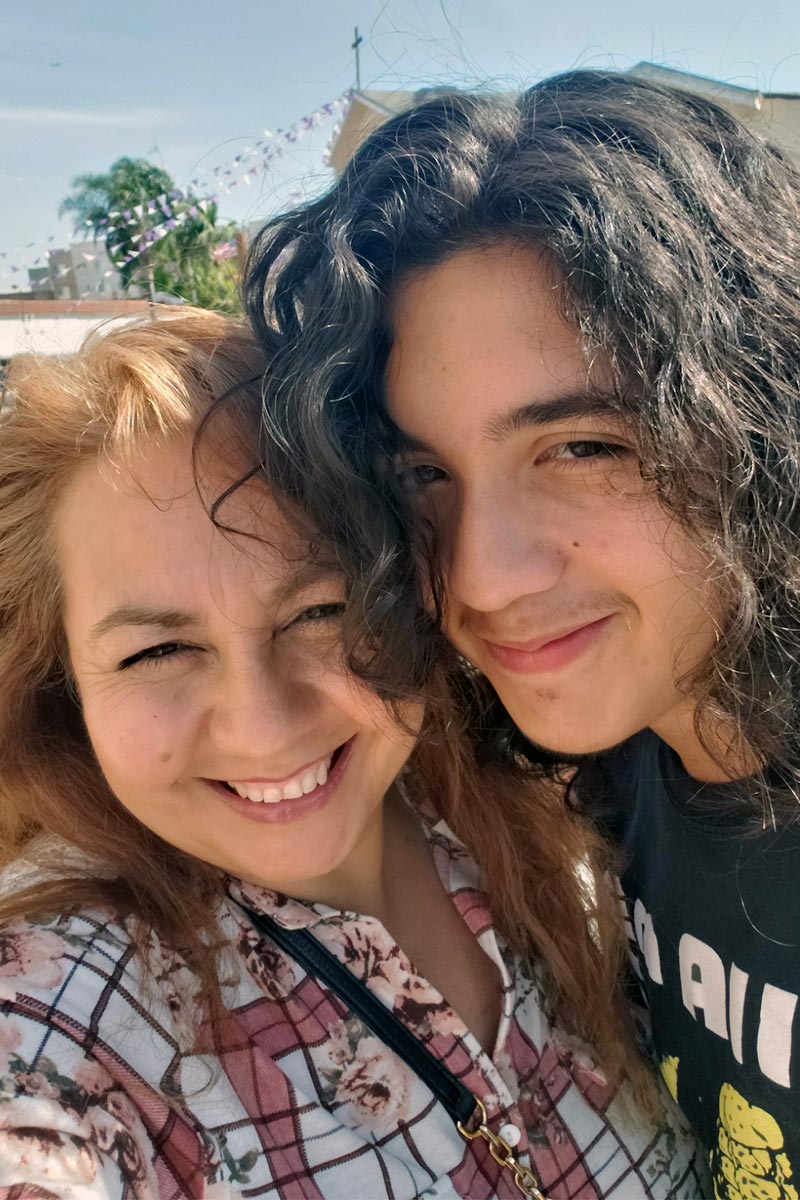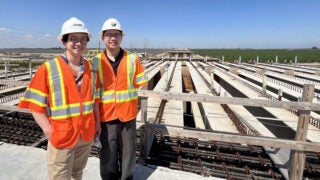Youngest son aims to be family’s first child with college degree, with some help from USC
Five years ago, Christopher Chavez and his family committed to the university’s Neighborhood Academic Initiative, a decision that transformed their future.
Fifth grader Christopher Chavez came home from his first Saturday school session at USC and couldn’t contain his excitement.
His mom, Maria Rodriguez, still remembers that exact moment and even his words: “Mommy, I sat down where the medical students sit. The seat could recline and everything. … Wow, I sat on the same seat as a doctor.”

That was five years ago, when Chavez started attending the USC Leslie and William McMorrow Neighborhood Academic Initiative, or NAI, a college prep program for students in schools surrounding USC campuses in South Los Angeles and the Eastside. The program offers a USC scholarship to students who complete the intensive seven-year program and meet the university’s admission requirements.
Now Chavez, 17, is a high school senior at Woodrow Wilson High School with dreams of majoring in computer science.
He has already been accepted to San Francisco State University, the University of California campuses at Santa Barbara and Santa Cruz, and the California State University campuses at Los Angeles and Bakersfield. On Tuesday, he was one of the 8,804 high school seniors across the country who found out they’d been accepted to USC.
Christopher Chavez and his family both feel the impact of USC’s college prep program
Chavez is Rodriguez’s youngest child. When she first immigrated to Los Angeles from Mexico, the single mother of three worked full time to fulfill her American dream. It’s a sacrifice that came at a high cost.
“You don’t learn English or spend time with the children or help them with their work,” she said. “I realize that it cost a lot. My older children, it was harder for them to get ahead.”
Chavez enrolled in NAI when the family lived in Huntington Park, but her two oldest didn’t. The experience showed Rodriguez the program’s impact — not just on Chavez but the entire family.
For me, it was a relief to have support from NAI.
Maria Rodriguez
NAI offers support services to anyone who lives in the same house or apartment as the students in the program. That means parents, siblings and anyone else in the household can see counselors, seek housing services or get invited to job fairs.
During the pandemic, NAI has provided face masks, food and even baby supplies to families.
Throughout the program, parents like Rodriguez participate in the Family Development Institute on Saturdays, where they learn techniques to support their children’s education.
That level of support put Rodriguez on a more level playing field with other parents.
“Parents who were born here or studied here and know how to use computers, they help their children,” she said. “I worried a lot because I couldn’t do that for my son. For me, it was a relief to have support from NAI.”
L.A. family wants its next generation to be a part of the Neighborhood Academic Initiative
The experience empowered Rodriguez. She now has the skills to get involved in her son’s education, and her family benefits from what Chavez has learned in NAI.
Rodriguez’s two older children, now adults with kids of their own, are trying to get them into the NAI program.
Chavez tutors his nieces and nephews, Rodriguez said, who look up to him as an example of where an education can take them.
Completing the program hasn’t been easy. It requires years of commitment and Saturday school for both children and parents, as well as tutoring after school and maintaining good grades. Traveling to mandatory events was timely and costly for Rodriguez, who depended on public transportation to get to the sessions.
“It costs us,” she said, “but the sacrifice is nothing compared to what my son received.”



